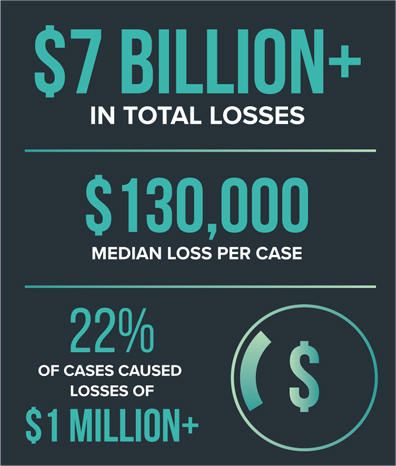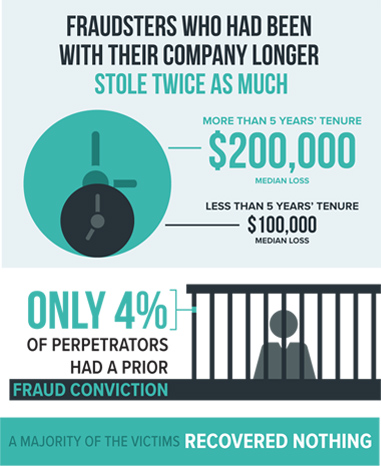Julie Lenzer Kirk, innovation leader, and consultant, once wrote the following:
“A recent article in my local newspaper reported a story about a woman who was going to jail for siphoning approximately $120,000 from her company’s coffers. I think the business owner is the one who should be doing time. Granted, embezzlement is not new and larger sums have been swindled away from larger and more established companies, but since this was a small business and the pilfered amount reportedly has the company on the brink of extinction, this is inexcusable. The business owner’s actions are criminal – he should have been more aware.
Perhaps this seems harsh, but I render this judgment as an entrepreneur who was completely uncomfortable with company finances when I started my first business 12 years ago. In fact, I took a “Finance and Accounting for Non-Financial Managers” class almost three years into my start-up. I see too many small business owners, unfortunately with many women entrepreneurs leading the pack, completely abdicating perhaps the most important aspect of their company to others or worse, having no one paying attention except at tax time. While I am not recommending you become an accountant to start a business, I am suggesting that the money in your company should never go completely untended by the owners.”

2018 Report to the Nations. Copyright 2018 by the Association of Certified Fraud Examiners, Inc.
The experts in the below articles that are well worth your time in the reading have described embezzlement very clearly. They also go on to tell you how to detect embezzlement with a myriad of internal controls. They refer to small business embezzlement and generally define small businesses as companies employing less than 500 employees.
For purposes of embezzlement detection – Auditors Inc. takes issue with their definition of small businesses. We agree with these business experts that in order for a small business owner to effectively detect embezzlement – internal controls are required. BUT, INTERNAL CONTROLS REQUIRE MULTIPLE BOOKKEEPING/ADMINISTRATIVE STAFFING NOT USUALLY AVAILABLE TO THE TYPICAL SMALL BUSINESS FOR PROFIT/NONPROFIT WHO IS VERY HAPPY TO BE ABLE TO AFFORD 1 OR 2 EMPLOYEES IN THIS CATEGORY.

2018 Report to the Nations. Copyright 2018 by the Association of Certified Fraud Examiners, Inc.
Auditors Inc.’s small business definition
A small for profit and nonprofit is any company that employees less than 3 bookkeeping/administrative staff necessary to implement division of duties so that embezzlement may be effectively prevented regardless of your annual sales or the number of other employees.
- https://www.entrepreneur.com/article/293726
- https://www.acfe.com/article.aspx?id=4294976289
- https://www.business2community.com/small-business/small-business-owners-needs-know-embezzlement-01856454
- https://www.hiscox.com/blog/how-to-stop-small-business-employee-theft
- https://www.cnbc.com/2017/09/12/workplace-crime-costs-us-businesses-50-billion-a-year.html
